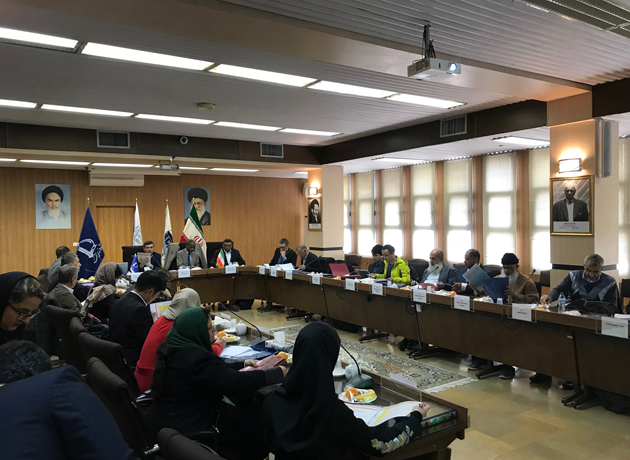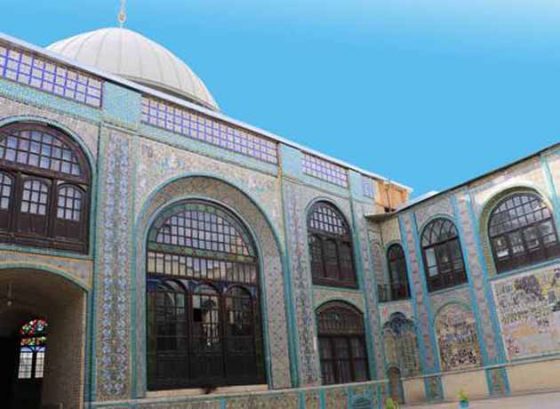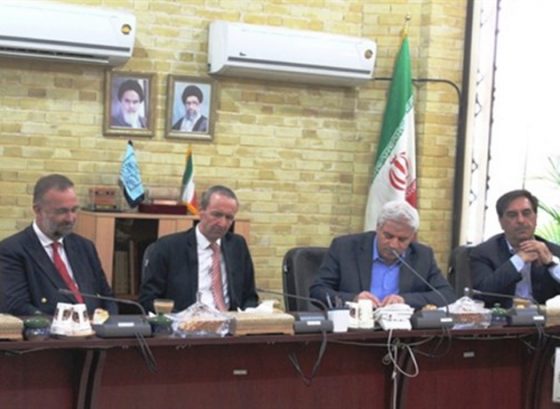12 December 2018 UNESCO organized the 8th Asian G-WADI meeting and 2nd International Drought Initiative (IDI) expert group meeting on 10-12 December 2018

UNESCO in collaboration with the Regional Centre on Urban Water Management (RCUWM) under auspices of UNESCO, Khorasan Razavi Regional Water Authority and Ferdowsi University of Mashhad organized the 8th Asian G-WADI meeting and 2nd International Drought Initiative (IDI) expert group meeting in Mashhad from 10 to 12 December 2018, AVA Diplomatic reports.
Over 25 experts from the Asian G-WADI network and the International Drought Initiative (IDI) shared their knowledge and experience in adaptation to water scarcity and new advances in drought management. The three-day event brought together around 100 participants from Iran as well as other countries of the world such as Afghanistan, China, France, India, Mongolia, Oman, Thailand, Slovenia, Uzbekistan, and Vietnam. Representatives from international organizations active in the field of drought management such as the Integrated Drought Management Programme (IDMP) and the Global Water Partnership (GWP) were also present in the meeting.
The meeting was opened by Dr. Mohammad Kafi, the dean of Ferdowsi University of Mashhad and Mr. Mohammad Alaee, the Director of Khorasan Razavi Regional Water Authority followed by a welcome message by Mr. Alexander Leicht, the Officer-in-Charge of the UNESCO Tehran Cluster Office.
Dr. Kafi stressed the importance of collaboration between all scientific organizations to develop new approaches in adaptation to water scarcity in arid areas. The importance of collaborative approaches to achieve the adaptation plans objectives also emphasized by Mr. Alaee.
“Freshwater is an important resource for human health. According to the latest research, the global demand for water has been increasing at a rate of about 1% per year as a function of economic growth and changing consumption patterns, among other factors. The demand will continue to grow significantly over the next two decades, and so will the associated challenges. It is therefore indeed timely to share our experiences in water management in countries which are facing particular challenges and to jointly explore solutions to water scarcity.” stated by Mr. Alexander Leicht during his remarks. He thanked the Ministry of Energy of the Islamic Republic of Iran and the Iranian National Commission for UNESCO for their continued support and for the excellent cooperation between Iran and UNESCO in the various domains of natural sciences.
The objectives of the three-day event were to increase regional cooperation for adaptation to water scarcity in arid and semi-arid zones as well as developing synergies between active programmes in the field of drought management.
The Asian G-WADI Network was established as far back as March 2005 by representatives from Afghanistan, China, India, Iran, Kyrgyzstan, Mongolia, Pakistan, Tajikistan, and Uzbekistan to respond to the urgent need for regional co-operation for the sustainable development of arid and semi-arid zones.
The International Drought Initiative (IDI) was approved at the 19th session of the International Hydrological Programme (IHP_ Intergovernmental Council in July 2010, in Paris, upon a proposal from Iran. The Regional Centre on Urban Water Management (RCUWM) in Tehran hosts the Secretariat of the Initiative. The Initiative provides a platform for networking and the dissemination of knowledge and information among stakeholders that are working to address droughts.




